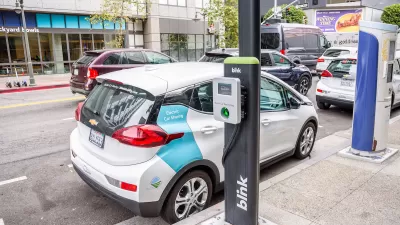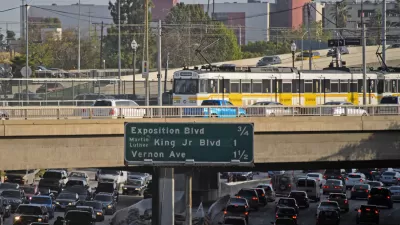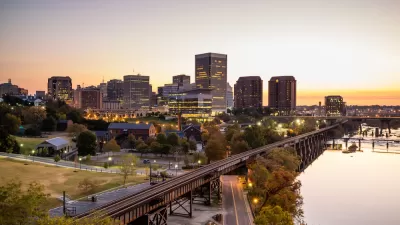Alissa Walker sheds light on the programs and institutions pushing Angelenos to change their commuting behaviors in an effort to recoup some of the 485 million wasted hours that cost the region more than $10 billion annually due to congestion.
While Los Angeles has begun the long-term implementation of a wide variety of transportation measures aimed to provide an alternative to the automobile, from bike lanes to mass transit, Walker looks at the programs making it easier to shift behaviors now, so that Angelenos can "share, borrow, and rent vehicles so we don't have so many cars on the road."
Among the progressive programs she examines is one that helps place commuters in a carpool or vanpool, an effort to reduce traffic demand by one of the city's largest employers, and a couple of car-sharing services.
While these programs may not add up to a city-wide cultural shift, Walker notes that they might not have to: "Reducing the number of cars on the road by only 2 or 3 percent could cut congestion delays by 10 to 15 percent."
FULL STORY: What Will It Take to Change Commuters' Behavior in Los Angeles?

Planetizen Federal Action Tracker
A weekly monitor of how Trump’s orders and actions are impacting planners and planning in America.

Restaurant Patios Were a Pandemic Win — Why Were They so Hard to Keep?
Social distancing requirements and changes in travel patterns prompted cities to pilot new uses for street and sidewalk space. Then it got complicated.

Maui's Vacation Rental Debate Turns Ugly
Verbal attacks, misinformation campaigns and fistfights plague a high-stakes debate to convert thousands of vacation rentals into long-term housing.

In California Battle of Housing vs. Environment, Housing Just Won
A new state law significantly limits the power of CEQA, an environmental review law that served as a powerful tool for blocking new development.

Boulder Eliminates Parking Minimums Citywide
Officials estimate the cost of building a single underground parking space at up to $100,000.

Orange County, Florida Adopts Largest US “Sprawl Repair” Code
The ‘Orange Code’ seeks to rectify decades of sprawl-inducing, car-oriented development.
Urban Design for Planners 1: Software Tools
This six-course series explores essential urban design concepts using open source software and equips planners with the tools they need to participate fully in the urban design process.
Planning for Universal Design
Learn the tools for implementing Universal Design in planning regulations.
Heyer Gruel & Associates PA
JM Goldson LLC
Custer County Colorado
City of Camden Redevelopment Agency
City of Astoria
Transportation Research & Education Center (TREC) at Portland State University
Jefferson Parish Government
Camden Redevelopment Agency
City of Claremont





























